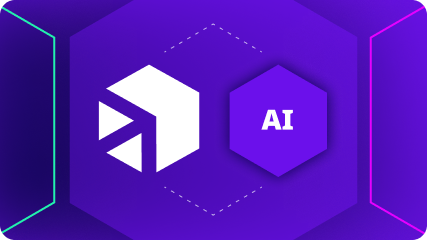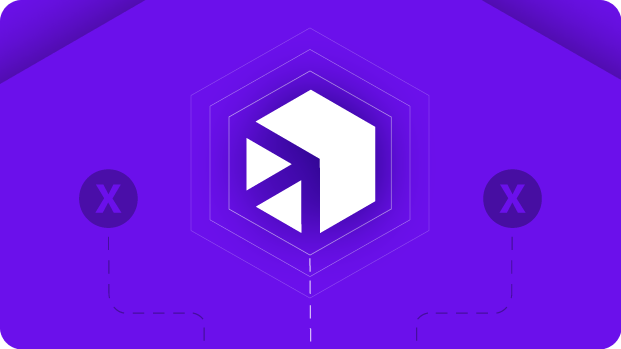August 9, 2024
Imagine sua empresa como um quebra-cabeça, com cada peça representando uma aplicação, sistema ou fonte de dados diferente. Antes do advento da Plataforma de Integração como Serviço (iPaaS), montar esse quebra-cabeça era uma tarefa difícil, repleta de ineficiências e dados isolados. De acordo com o Relatório – 2023 State of Enterprise Integration, 75% das empresas enfrentam silos de dados, o que leva a ineficiências operacionais e oportunidades perdidas.
Esta estatística surpreendente sublinha a necessidade urgente de uma solução como o iPaaS para agilizar os processos de integração e desbloquear todo o potencial dos dados empresariais.
75% das empresas lutam com silos de dados, levando a ineficiências operacionais e oportunidades perdidas
Relatório – 2023 State of Enterprise Integration
O que é plataforma de integração como serviço (iPaaS)?
A Plataforma de Integração como Serviço (iPaaS) é uma solução baseada em nuvem projetada para conectar sistemas, aplicações e fontes de dados diferentes em ambientes locais e em nuvem. Ao utilizar APIs e outras ferramentas de integração, o iPaaS permite comunicação e compartilhamento de dados contínuos entre sistemas, independentemente de sua localização ou arquitetura.
Principais características do iPaaS
- Cloud-based: As soluções iPaaS são hospedadas na nuvem, oferecendo escalabilidade e flexibilidade.
- Múltiplos inquilinos: Suporta vários usuários e clientes na mesma infraestrutura.
- Orquestração de workflows: Automatiza e gerencia workflows em diferentes sistemas.
- Integração em tempo real: Permite processamento e atualizações de dados em tempo real.
- Monitoramento e gerenciamento: Fornece ferramentas para monitorar o desempenho da integração e gerenciar integrações.
>> Agende uma demonstração personalizada com nossa equipe de especialistas e veja como o iPaaS da Digibee trará eficiência ao seu negócio.
iPaaS x ESB
Embora o iPaaS e o Enterprise Service Bus (ESB) tenham como objetivo integrar sistemas, o iPaaS oferece uma abordagem mais flexível, escalável e nativa da nuvem. Os ESBs são normalmente soluções locais que exigem investimento e manutenção iniciais significativos. Por outro lado, o iPaaS aproveita os serviços em nuvem para reduzir a complexidade e os custos, tornando-o uma opção mais acessível para muitas empresas.
Para saber mais sobre iPaaS, visite O guia definitivo para iPaaS.
15 benefícios das soluções iPaaS
1. Complexidade reduzida
O iPaaS simplifica o processo de integração, fornecendo uma plataforma unificada para conectar todos os aplicações e sistemas. Isso reduz a necessidade de código personalizado e minimiza a complexidade do gerenciamento de vários pontos de integração.
| Payless, varejista global de calçados, conseguiu integrar seus sistemas em 200 lojas em 15 países em menos de 30 dias usando uma solução iPaaS. Esta rápida integração permitiu à empresa concentrar-se na expansão da sua presença no mercado, em vez de ficar atolada em complexidades de TI. |
2. Corrigir e remover silos de dados
Ao conectar sistemas distintos, o iPaaS elimina silos de dados, permitindo um fluxo contínuo de dados em toda a organização. Isso leva a uma melhor tomada de decisões e operações mais eficientes.
3. Colaboração mais fluida entre equipes
O iPaaS promove a colaboração, fornecendo uma plataforma centralizada para compartilhamento de dados e processos. Isso permite que as equipes trabalhem juntas de forma mais eficaz, eliminando silos organizacionais.
| A grande seguradora usou um iPaaS para integrar suas diversas plataformas de atendimento ao cliente, melhorando significativamente a colaboração entre departamentos. Agilizou o cadastro de propostas e políticas pelas corretoras parceiras, automatizou workflows que eram manuais e simplificou processos para documentação de suporte, permitindo que todos os corretores registrados vendessem facilmente produtos da Porto Seguro. |
4. Ganhos de eficiência
A automatização de tarefas de integração com iPaaS reduz o esforço manual, levando a ganhos significativos de eficiência. Isso permite que as equipes de TI se concentrem em iniciativas mais estratégicas.
5. Melhores workflows de automação
O iPaaS permite a criação de workflows de automação sofisticados, simplificando os processos de negócios e melhorando a eficiência operacional.
6. Melhor experiência do cliente
Ao integrar sistemas voltados para o cliente, o iPaaS aprimora a experiência do cliente.
| Por exemplo, nos Hotéis GJP obtivemos uma redução de 80% no tempo de espera dos hóspedes usando iPaaS para agilizar seus processos de reserva e check-in. |
7. Maior eficiência de custos
O iPaaS reduz a necessidade de integrações personalizadas dispendiosas e hardware local, resultando em economias de custos significativas. Além disso, sua natureza baseada em nuvem garante que os custos se adaptem ao uso.
| A grande fornecedor de logística aproveitou o iPaaS para automatizar e agilizar suas operações da cadeia de suprimentos, alcançando uma redução de 20% nos custos operacionais ao integrar rapidamente os sistemas existentes com novas aplicações baseadas em nuvem, sem a necessidade de códigos personalizados caros. |
8. Uma visão geral clara do desempenho
Com ferramentas integradas de monitoramento e gerenciamento, o iPaaS fornece uma visão geral clara do desempenho da integração. Isso ajuda as organizações a identificar e resolver problemas rapidamente.
9. Privacidade e segurança de dados
As soluções iPaaS são projetadas com a segurança em mente, oferecendo criptografia robusta de dados e recursos de conformidade para proteger informações confidenciais.
10. Facilidade de integração
O iPaaS simplifica o processo de integração, permitindo que as empresas conectem rapidamente novas aplicações e sistemas. Por exemplo, a Payless integrou 200 lojas em 15 países em menos de 30 dias.
11. Implementação rápida
O iPaaS permite a rápida implementação de integrações, reduzindo o tempo de lançamento de novas aplicações e recursos no mercado.
| O iPaaS permitiu a uma empresa líder em FinTech integrar o seu sistema bancário principal com uma nova plataforma de pagamento digital em apenas 45 dias, ao invés dos seis meses previstos. A integração rápida foi crucial para permitir que a empresa lançasse o seu novo serviço a tempo, cumprindo um prazo crítico do mercado e posicionando-se como líder competitivo no espaço de pagamentos digitais. |
12. Escalabilidade
As soluções iPaaS podem ser facilmente dimensionadas para acomodar volumes crescentes de dados e demandas crescentes de integração.
| A empresa global de e-commerce escalou com sucesso suas operações para acomodar os períodos de pico de compras usando um iPaaS. A escalabilidade da plataforma permitiu à empresa integrar perfeitamente novos canais de vendas e expandir o seu alcance de mercado sem sobrecarregar a sua equipa de TI. |
13. Flexibilidade
O iPaaS oferece flexibilidade para conectar uma ampla variedade de aplicações e sistemas, sejam eles locais ou na nuvem.
14. Monitoramento e Gestão
As plataformas iPaaS vêm com ferramentas integradas de monitoramento e gerenciamento que fornecem visibilidade em tempo real do desempenho da integração, permitindo que as empresas identifiquem e resolvam problemas de forma proativa.
| Banco Santander usou um iPaaS para monitorar e gerenciar integrações em seus diversos sistemas financeiros. Esta implementação não apenas reduziu o tempo necessário para identificar e resolver problemas, mas também melhorou a confiabilidade geral do sistema, garantindo uma experiência perfeita para o cliente. |
15. Adaptabilidade às mudanças tecnológicas
O iPaaS foi projetado para se adaptar a novas tecnologias e padrões de integração, garantindo que as empresas possam ficar à frente da curva. Esta adaptabilidade é crucial para as empresas que procuram modernizar a sua infraestrutura de TI e permanecer competitivas.
| A produtora global de produtos de panificação aproveitou o iPaaS para modernizar seu sistema ERP para a nuvem. Eles integraram 14 de seus sistemas legados com aplicações modernas baseadas em nuvem, quatro meses antes do previsto e com economia de custos de US$ 2 milhões. O iPassS não só facilitou uma transição mais suave para uma tecnologia mais recente, mas também posicionou a marca para responder melhor aos futuros avanços tecnológicos. |
Desafios com um iPaaS
Apesar de seus muitos benefícios, a implementação de um iPaaS pode trazer desafios:
- Complexidade: A integração de diversos sistemas pode ser complexa, exigindo planejamento e execução cuidadosos.
- Escalabilidade: Garantir que a solução iPaaS possa ser dimensionada de acordo com as necessidades do negócio é crucial.
- Segurança: Proteger os dados e garantir a conformidade com os regulamentos é uma prioridade máxima.
- Agilidade ana arquitetura: Adaptar a arquitetura de integração às mudanças nas necessidades dos negócios requer flexibilidade.
- Garantir que haja alta disponibilidade e desempenho: Manter integrações confiáveis e de alto desempenho é essencial para a continuidade dos negócios.
Padrões de integração iPaaS
1. Integração do ecossistema B2B
O iPaaS facilita a integração perfeita entre parceiros de negócios, permitindo troca e colaboração eficientes de dados.
2. Integração Híbrida
Combinando sistemas locais e em nuvem, o iPaaS oferece suporte a cenários de integração híbrida, permitindo que as empresas aproveitem o melhor dos dois mundos.
3. Integração de aplicações
O iPaaS conecta várias aplicações dentro da empresa, garantindo fluxo de dados tranquilo e automação de processos.
Alternativas ao iPaaS
iPaaS x ESB
O Enterprise Service Bus (ESB) é uma solução local tradicional que se concentra na integração de aplicações corporativas por meio do roteamento de mensagens entre elas. Os ESBs são adequados para lidar com integrações complexas de sistemas legados em um ambiente rigidamente controlado. No entanto, muitas vezes eles não têm a flexibilidade e a escalabilidade necessárias para gerir ecossistemas modernos baseados na nuvem. À medida que as empresas adotam cada vez mais serviços em nuvem e exigem soluções de integração mais rápidas e ágeis, o iPaaS emergiu como uma alternativa mais adaptável. Ao contrário dos ESBs, o iPaaS é inerentemente projetado para ambientes cloud, oferecendo uma solução mais escalável, flexível e econômica para integrar uma ampla variedade de aplicações locais e baseadas em nuvem.
SaaS x iPaaS
Os softwares como serviço (SaaS) fornecem aplicações de software específicas entregues na nuvem, permitindo que as empresas acessem e usem sem a necessidade de infraestrutura ou manutenção interna. Embora os SaaS sejam altamente convenientes e escaláveis, eles operam em silos, a menos que sejam integrados a outros sistemas. É aqui que entra o iPaaS. O iPaaS serve como tecido conjuntivo entre várias aplicações SaaS e outros sistemas empresariais, permitindo a troca contínua de dados e automação de workflows entre plataformas. Ao integrar várias aplicações SaaS, o iPaaS ajuda as organizações a criar um ambiente de TI coeso e unificado que melhora a eficiência operacional e a consistência dos dados.
iPaaS x PaaS
As plataformas como serviço (PaaS) fornecem uma plataforma baseada em nuvem para desenvolvimento, teste e implementação de aplicações, oferecendo ferramentas e serviços que simplificam o processo de desenvolvimento. Embora a PaaS seja ideal para o desenvolvimento de aplicações, ela não oferece inerentemente os recursos de integração necessários para conectar essas aplicações a outros sistemas. O iPaaS, por outro lado, foi projetado especificamente para resolver essa lacuna, fornecendo ferramentas de integração robustas que conectam diversas aplicações, fontes de dados e serviços em diferentes ambientes. Embora o PaaS seja essencial para o desenvolvimento e implementação de aplicações, o iPaaS o complementa, garantindo que elas possam ser perfeitamente integradas à arquitetura empresarial mais ampla.
Escolha o iPaaS certo para o seu negócio
Ao avaliar soluções iPaaS, considere os seguintes critérios:
- Foco do fornecedor e experiência na área: Certifique-se de que o fornecedor tenha um forte foco na integração e experiência relevante do setor.
- Facilidade de implementação: Procure soluções que ofereçam um processo de implementação simples.
- Integrações: Verifique a gama de integrações suportadas para garantir a compatibilidade com os seus sistemas, sejam eles locais ou baseados na nuvem.
- Segurança: Verifique se a solução oferece recursos de segurança robustos e conformidade com as regulamentações relevantes.
- Gestão do dia a dia: Considere as ferramentas e recursos disponíveis para gerenciar integrações diariamente.
- Custo: Avalie o modelo de preços para garantir que ele se ajuste ao seu orçamento e ofereça um bom valor.
Por que escolher a Digibee?
A Digibee se destaca como uma “plataforma de integração sem servidor e nascida na nuvem”, projetada para dimensionar integrações em microsserviços, plataformas em nuvem e arquiteturas legadas. Aqui estão alguns dos principais benefícios de escolher a Digibee:
- Construtor de integração low-code: Simplifica o processo de integração com uma interface de arrastar e soltar, reduzindo a necessidade de codificação extensa.
- Componentes reutilizáveis drag-and-drop (Cápsulas): Mesclam a simplicidade de funções individuais com o poder de APIs completas. Simplifique o desenvolvimento, corte custos operacionais e acelere a implementação.
- Ferramentas alimentadas por IA: Acelere a entrega do projeto e workflows com ferramentas avançadas de IA para automatizar processos de documentação, fornecendo orientação de codificação baseada no contexto, utilizando recursos e casos de uso abrangentes e acessando um conjunto de infraestrutura integrada totalmente equipado.
- Zero-operations: Reduza incidentes e custos operacionais com zero-operations, que ativa workflows somente quando necessário, atualiza e implementa perfeitamente sem tempo de inatividade, ajusta e dimensiona automaticamente a capacidade de acordo com a demanda e fornece execuções isoladas para arquitetura combinável.
- Preços simples: Elimine desperdícios com uma abordagem transparente e modelo de precificação baseada no consumo.
- Treinamento extensivo e suporte prático: Oferece suporte confiável e abrangente e treinamento completo para ajudá-lo a aproveitar ao máximo suas integrações.
Faça um tour pelo produto para ver o Digibee em ação e descobrir como ele pode transformar sua estratégia de integração.
Conclusão
Os benefícios das soluções iPaaS são claros, desde a redução da complexidade e eliminação de silos de dados até a melhoria da colaboração e da eficiência. Ao abordar desafios comuns de integração e oferecer uma plataforma escalável e flexível, o iPaaS é uma ferramenta essencial para as empresas modernas. Escolha a solução iPaaS certa para o seu negócio e considere a Digibee por sua abordagem à integração inovadora e low-code.
Quer saber mais sobre o inovadoriPaaS da Digbee? É só clicar abaixo!aaS?








